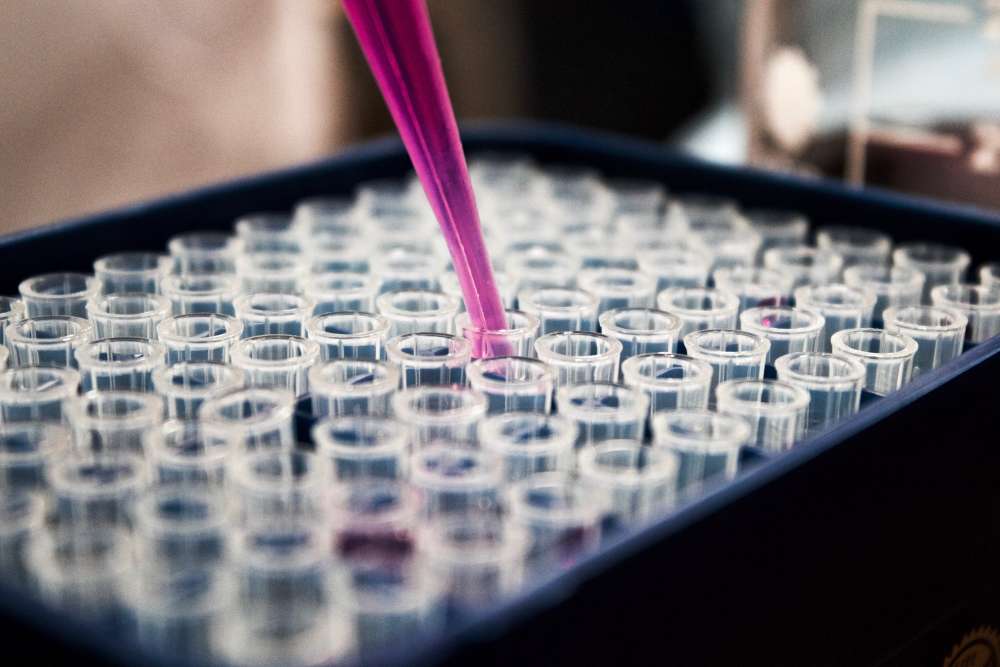Global Health Security Is National Security

(Diana Polekhina /Unsplash)
Recent pandemics have highlighted shortcomings in governance and policymaking around health crises. To better protect its national security, Germany needs to make health security a greater priority.
Throughout history, infectious disease outbreaks with pandemic potential have been a regular occurrence – and today’s increasingly interconnected world only raises the security concerns that come with them. As we have seen most recently with COVID-19 (but also in cases like HIV/AIDS, Ebola, Zika, H1N1, and SARS), the emergence and spread of new microbes has serious health, socioeconomic, and political consequences. In addition to causing severe illness and death, such public health emergencies can stall economies, disrupt travel and trade, increase inequalities, and enable political instability – ultimately taking a toll on human security.
Broadening the Definition of Security
As Germany establishes its first National Security Strategy in the wake of Russia’s war on Ukraine and the acute phase of the COVID-19 pandemic, there is an opportunity to redefine security policy in more broad terms. Over the last year, Chancellor Olaf Scholz’s Zeitenwende has dramatically shifted beyond the post-Cold War focus on crisis management and prevention, diplomacy, and development assistance cooperation by bringing more classic areas of security and foreign policy such as defense and deterrence to the forefront. Fundamental to this metamorphosis will be setting a clear definition of security. And as the world combats two ongoing pandemics – COVID-19 and HIV/AIDS – Germany has the opportunity to cement a role for health security priorities in its national and global security agenda.
» As the world combats two ongoing pandemics – COVID-19 and HIV/AIDS – Germany has the opportunity to cement a role for health security in its national and global security agenda. «
At its core, security is about upholding certain values and institutions. Two of the most fundamental values for security include sovereignty and territorial integrity – and international law provides the framework within which actors on the international stage can protect these principles. While these values and the use of law are evident in the context of war and peace, they also play an important role in global health security and governance concerns ranging from the sharing of technology and epidemiological data to trade and travel regulations. In addition, German Foreign Minister Annalena Baerbock’s definition of European sovereignty as “cooperation wherever possible and independence wherever necessary” scales up to the global context when considering pandemic preparedness.
Three Strategies to Promote Health Security
The HIV/AIDS and COVID-19 pandemics have uncovered shortcomings in both national and global governance and policymaking around health crises. To make health security a greater priority, Germany and other states around the world should consider implementing the following three strategies.
Incorporating a One Health Approach
First, it is important to recognize that human health security is intertwined with animal and environmental health security. Most infections occur due to cross-overs from animals to people, which are happening more often as humans disturb ecosystems, impinge on or overtake natural habitats, and increasingly live in close proximity to animals. Leading with a One Health approach that recognizes this interconnectedness will require coordinating across multiple sectors and strengthening overall health capacity rather than concentrating on specific diseases. Doing so will allow for a comprehensive and long-lasting health security strategy that focuses on outbreak prevention. Stakeholders in a One Health system would range from healthcare and public health professionals to environmental groups and livestock farmers.
Ultimately, preventative measures are more economically viable than reactive ones when dealing with public health emergencies. The World Bank has estimated that a One Health approach could save tens of billions of Euros per year. To make the most of this advantage, involving Germany’s Ministries of Agriculture, Economic Cooperation and Development, and Health in the establishment of a national security agenda would be fruitful.
Key Points:
- As global connectivity increases the concern for pandemics, Germany should cement a role for health security priorities in its national and global security agenda.
- To better promote health security, Germany should adopt a One Health approach to human health security, establish greater vaccine equity and strengthen its support for the World Health Organization.
Promoting Equity of Access
Second, vaccine inequity has been the greatest obstacle to ending the COVID-19 pandemic, with unequal access to knowledge, key technologies and vaccines themselves opening the door for the emergence of variants and additional waves across the globe. As a COVID-19 vaccine producer with a strong pharmaceutical industry, Germany plays a critical role in establishing important norms regarding the equity, accessibility, and affordability of medicines and personal protective equipment (ppe) during public health emergencies. To better combat the spread of COVID-19 as a part of a comprehensive health security strategy, one key multilateral effort is the ACT Accelerator, which also includes the vaccination initiative COVAX. It is in Germany’s own national interest to support these efforts. Directorate-General of the World Health Organization Dr. Tedros Adhanom Ghebreyesus stated that “no one is safe until we are all safe,” highlighting the underlying interconnectedness of pandemic preparedness and the need for a multilateral approach to address health security concerns for all. We have seen the success of the World Trade Organization’s TRIPS waiver in making antiretroviral drugs affordable and accessible for containing the effects of the HIV/AIDS pandemic in low- and middle-income countries. Now, it is also imperative that Germany be a leader in establishing vaccine equity and the sharing of intellectual property rights in the context of COVID-19 and future pandemics.
Multilateralism and Strengthening the World Health Organization
Third, if Germany wants to coordinate with international actors on global and national health security concerns, it needs a strong World Health Organization (WHO) with more enforcement mechanisms. Reinforcing the capabilities of and building a solid relationship with the central figure in global health governance will be key to securing the future of German health security. WHO was born out of an era of multilateralism after the Second World War, but remains mostly a paper tiger – providing guidelines and recommendations without any ability to hold countries accountable to them.
» In an ever-more globalized world, national security will increasingly overlap with global health security – and strategic multilateralism will be the way forward. «
With a budget that is comparable to that of a large hospital in Germany, additional and more flexible funding schemes would go a long way to making WHO a more effective actor on global health security. The WHO Pandemic Hub based in Berlin and supported by the German government exemplifies this kind of relationship.
As Germany develops its first National Security Strategy, it has an opportunity to also establish a modern take on security in line with the core values of sovereignty and territorial integrity and with the complex concerns of our time – war and peace, climate change and pandemic preparedness. In an ever-more globalized world, national security will increasingly overlap with global health security – and strategic multilateralism will be the way forward.
Renu Singh
Social Scientist, Bocconi University
Keep on reading

Pandemic Pathogens as Biological Weapons: Revisiting German Biodefense
Catastrophic pandemics are becoming more likely. Soon, advances in biotechnology could enable thousands of individuals to create pandemic viruses from scratch and misuse them as biological weapons.

